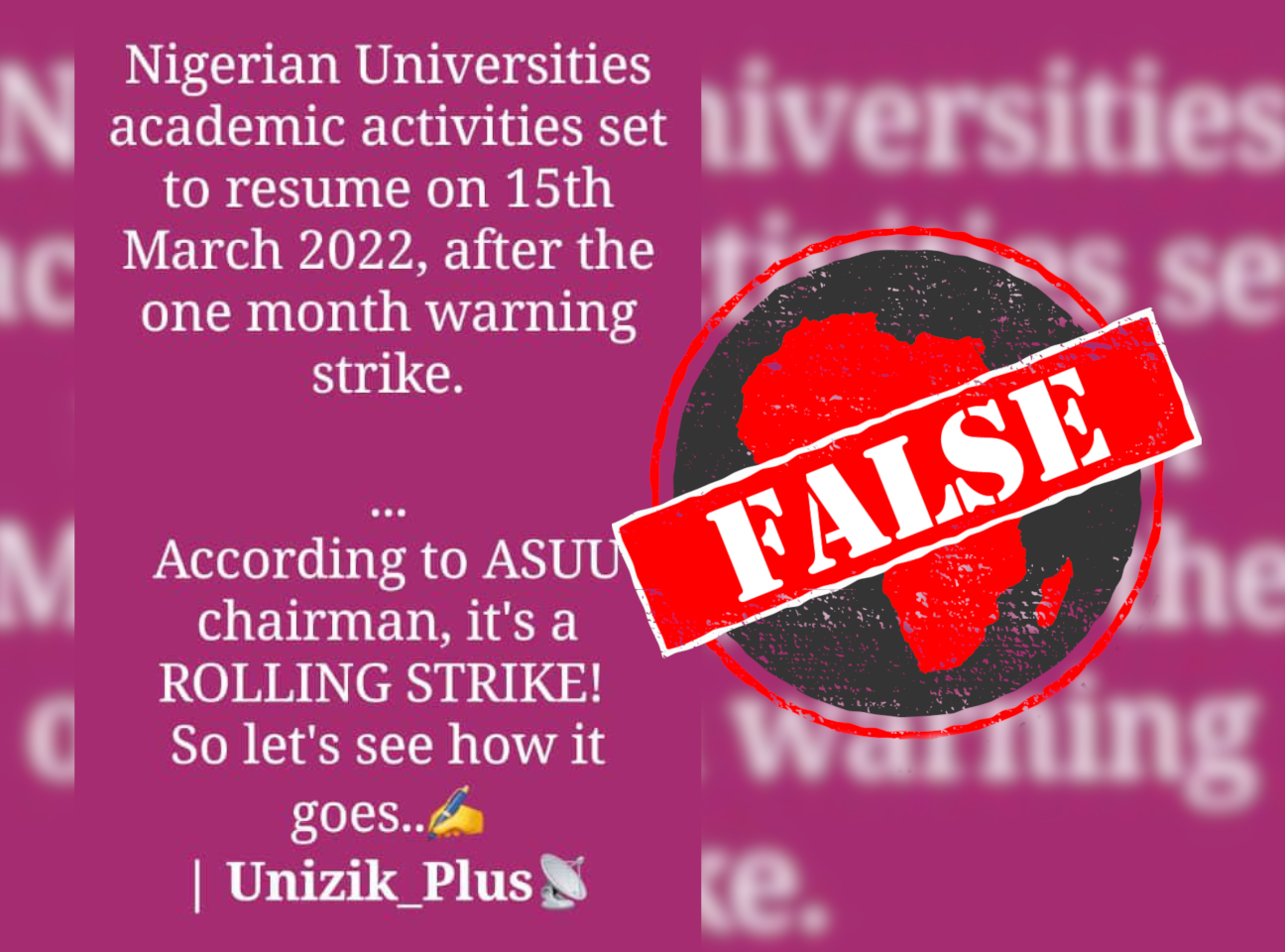A message posted on Facebook claims Nigerian universities have resumed lectures with the suspension of a one-month strike by the Academic Staff Union of Universities (ASUU).
“Nigerian universities academic activities set to resume on 15th March 2022, after one-month warning strike,” it reads. “According to ASUU chairman, it is a rolling strike! So let’s see how it goes.”
In February 2022, the university union declared that it was embarking on a month’s strike to press the federal government to meet its demands.
Some of the demands include the payment of both earned allowances and revitalisation funds to universities.
But is the message authentic? We checked.

‘Comprehensive and total’ strike
According to reports, ASUU has not called off the strike. It has instead extended the strike by two months.
The national president of the union, Prof Emmanuel Osodeke, described the strike as “comprehensive and total”. This means all public universities have been shut down.
There have been no reports of Nigerian public universities reopening. The news would have been widely covered by credible media outlets.
Only Delta State University resumes
But Delta State University, which backed out of the ASUU strike, has directed students to immediately return to the campus for academic activities.
The university made the decision at its 183rd regular meeting on 16 March.
Republish our content for free
For publishers: what to do if your post is rated false
A fact-checker has rated your Facebook or Instagram post as “false”, “altered”, “partly false” or “missing context”. This could have serious consequences. What do you do?
Click on our guide for the steps you should follow.
Publishers guideAfrica Check teams up with Facebook
Africa Check is a partner in Meta's third-party fact-checking programme to help stop the spread of false information on social media.
The content we rate as “false” will be downgraded on Facebook and Instagram. This means fewer people will see it.
You can also help identify false information on Facebook. This guide explains how.


Add new comment